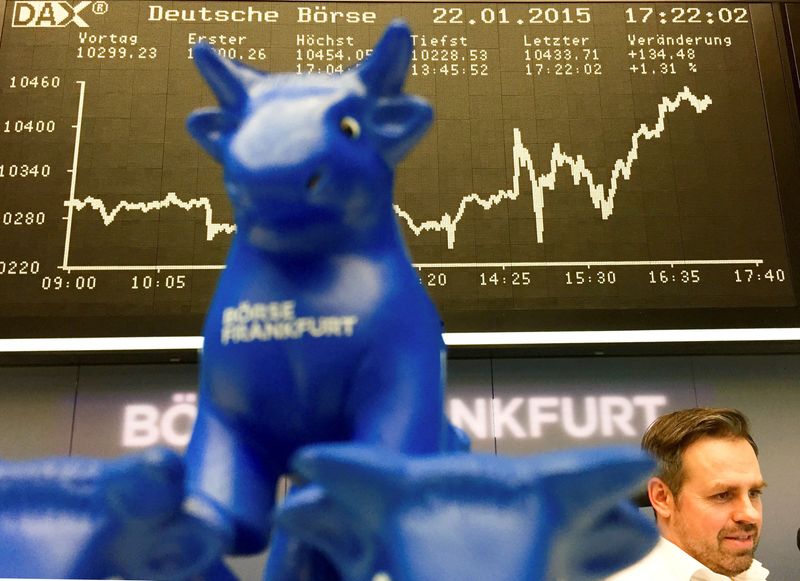By Peter Nurse
Investing.com - European stock markets traded higher Monday, as investors digested more corporate earnings at the start of a week that includes the release of key U.S. inflation and U.K. GDP data.
By 03:45 AM ET (0745 GMT), the DAX in Germany traded 0.5% higher, the CAC 40 in France rose 0.5%, and U.K.’s FTSE 100 rose 0.2%.
European equities have benefited over the last couple of weeks from the release of largely positive corporate earnings.
Siemens Energy (ETR:ENR1n) bucked the trend Monday, its stock falling 3.9% after the supplier of equipment to the power industry warned of a deeper than previously expected net loss in 2022, announcing a charge of around 200 million euros ($204 million) due to the restructuring of its business in Russia.
However, a couple of M&A deals helped the tone.
French utility company Veolia (EPA:VIE) stock rose 2% after it confirmed a deal to sell Suez's U.K. waste business to Australia's Macquarie Group (ASX:MQG) for around 2.4 billion euros ($2.4 billion).
Additionally, Joules (LON:JOUL) stock soared 33% after it confirmed weekend reports on Monday that it is in talks with larger rival Next (LON:NXT), up 0.4%, for the latter to take a strategic stake in the struggling British fashion chain.
Away from the corporate sector, investors’ attention will be focused on Wednesday’s U.S. consumer price index, particularly after Friday’s much stronger-than-anticipated U.S. jobs report diluted hopes that the Federal Reserve may relent in its aggressive campaign to tame inflation.
Economists expect the annual rate of inflation to moderate to 8.7% in July from 9.1% in June, which was the largest increase since 1981.
Also of note will be the release of U.K. GDP for June as well as the second quarter on Friday, after the Bank of England warned last week that it expects the economy to enter a prolonged recession later this year.
Oil prices edged higher Monday, but remained near multi-month lows as recession fears weigh heavily on the demand outlook.
The latest data pointed to a slow recovery in China, the world's top crude importer, from the COVID-19 shutdown. The second-largest economy in the world imported 8.79 million barrels per day of crude in July, up from a four-year low in June, but still 9.5% lower than a year ago.
By 03:45 AM ET, U.S. crude futures traded 0.7% higher at $89.61 a barrel, after dropping just under 10% last week. The Brent contract rose 0.7% to $95.57, after a weekly loss of just under 14% last week, falling to their lowest levels since February.
Additionally, gold futures rose 0.2% to $1,794.55/oz, while EUR/USD traded 0.1% higher at 1.0191.
